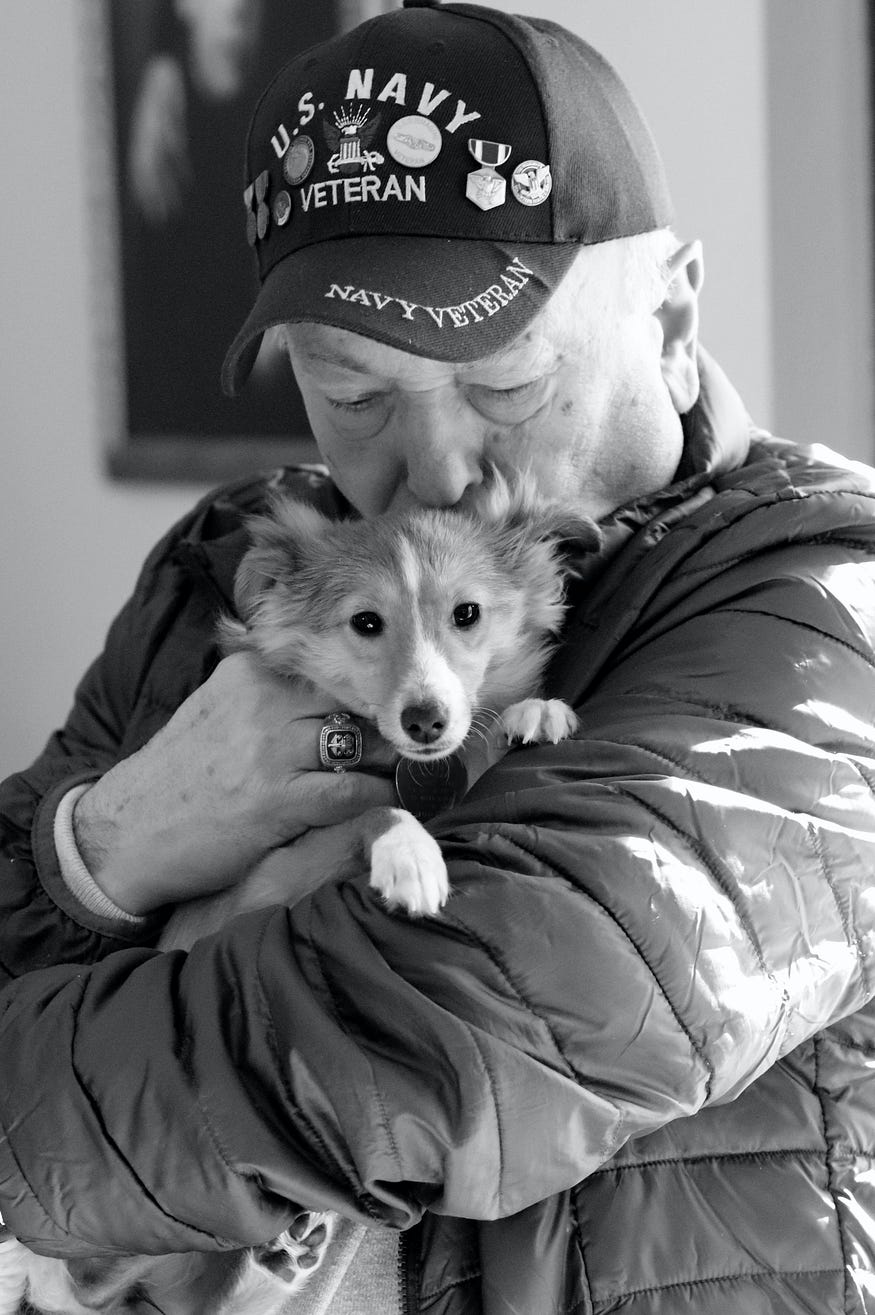What labels do we use to define a life?

“I’m so lonely,” he said. “Would you have a drink with me on my patio for happy hour?”
Our cars were assigned parking spaces next to each other. He owned an immaculate Jeep sporting a Navy Vet bumper sticker and a Disabled American Veteran license plate. I owned a somewhat ratty Honda that had lots of good running miles left.
“Of course,” I said. We were apartment neighbors and had nodded in passing on the sidewalk. He used a cane. I guessed he was a widower; the curtains were too frilly for a man to have picked out.
We were all locked down.
We were discombobulated, shut away from our usual haunts, fast friends, and casual acquaintances. I was lonely, too. I figured we had nothing in common, but it was a chance to reach across that great divide.
I live in an exurban county bumping up to a city. Big Ford 150s with flags flying from both sides of the flatbed, Trump and the U.S. flags, were common. So were Subarus with bumper stickers that said “Imagine Whirled Peas” or “Coexist” with varied religious symbols.
For about a year during the pandemic, we shared happy hours, a few times a week. I asked general questions, then probing questions. He told stories.
He was a widower. His wife had had a heart attack in the living room two years ago, and he hadn’t sat in that room since … until I showed up and the patio got too rainy or cold, then I ventured inside. He got reintroduced to his recliner. We gave up masks.
I was the lady next door, and he knew all the surface information about me. I’d retired, I had an adult son and his family, and I’d moved from Minnesota a year before the shutdown.
The evolving friendship stepped up to my sharing extra baked goods — muffins, cookies — with him. He shared extra produce or deals with me. He drove me to an eye appointment when I wouldn’t be able to see afterward. I drove him to pick up his car, from a mechanic’s check-up.
We were opposites, politically, which I expected.
We each listened respectfully to the other’s points of view and we didn’t go into the deep water.
I learned he had done one tour of duty, enlisting after high school to have a place to live and to learn a trade. He earned Navy pilot’s wings for flying early drones. He was proud he had shaken JFK’s hand. He had easy duty, really, Hawaii, the Philippines, back stateside. He didn’t re-up when he knew his next tour would include the new war in Southeast Asia, in Vietnam.
He had a procedure at a VA hospital that was botched after he had left the Navy. After years of wrangling, he got a settlement and the Disabled Veteran designation. No military action contributed to his limp.
He narrated his tattoos, often accompanied, when they were given, by grand drunks. Norwegian sailors gave the Americans beer with raw cod and laughed at the Americans’ disgust.
He worked as a machinist, and a mechanic. He picked up maintenance jobs and divorced twice till he found happiness with his third wife. After twenty years, she died.
I was next door
I had shared nothing of my significant past and was never asked. He didn’t know I had been a preacher’s kid, hippie chick, and CEO. My current identity as a writer and poet was understood as a hobby, as he collected and traded pins from various American Legion organizations.
He wore a hat that proclaimed “Navy Vet” in embroidered gold letters and flew the American flag from a bracket outside his apartment window. His six years of easy service created his life’s identity.
He thought maybe we could be something more. “No, absolutely not, we’re friends and neighbors, that’s it. We are nothing alike,” I said.
“Does that matter?” he asked.
It had been a gesture of reconciliation and pragmatism for me. Maybe, given my checkered history with fellow travelers, simple goodwill should outweigh other criteria. But it doesn’t.
I have an identity I’ve wrapped myself in, too. It may have shifted, and maybe it’s as manipulated as a six-year-enlistment defining a life, with some shaded implications that don’t match reality. I’ve let labels define me. I’d just prefer they be a closer fit.
So, like the old argument of 50 years ago about relationships between men and women, maybe we can’t still be friends. I’d like to be. He thought not. Then he had a stroke and moved out.
‘ ‘ ‘ ‘ ‘
I’d like a ready-made friend next door. I’d like someone to share needed rides, or happy hour, or a bite to eat. I’d like deeper conversations. I’d like spontaneity. I have friends, but time or distance is not always convenient. People have moved on. I’ve moved. So I’ll put myself out there, for friendships. It’s an old dilemma, for many of us.

Keta McCarthy
Heartfelt Sharon, I enjoyed it.
SingingFrogPress
Oh Sharon, I love all the details of this unlikely friendship and your thoughts on how every one of us wraps ourselves in whatever identities we evolve into. So much wisdom here.